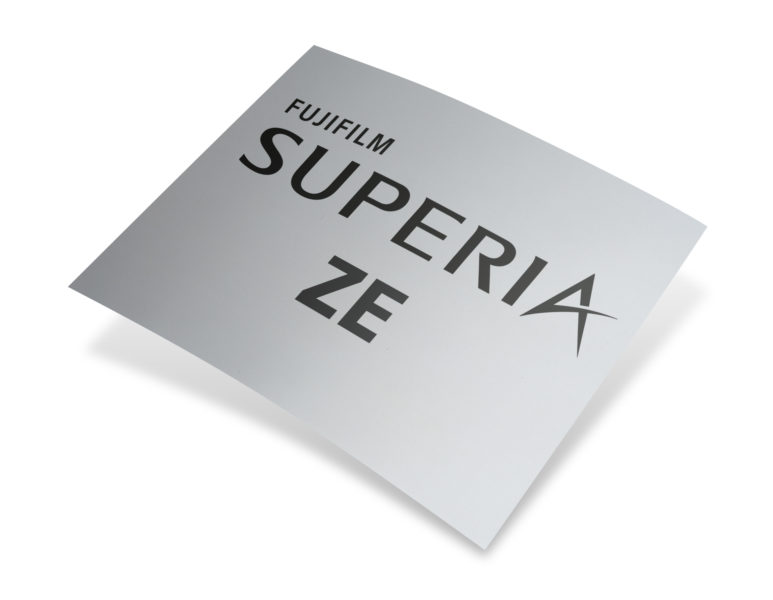Long the holy grail of plate production, processless technology has remained largely inaccessible to many printers for a variety of reasons. Latent image visibility has been an issue, as has run length, while there have also been concerns among some printers about the development of plates on-press. Cost has often proven to be a further obstacle.
Superia ZE addresses all of these challenges head on. It represents the very best combination of latent image visibility, quality, durability, versatility, run length and on-press performance currently available on the market. Furthermore, with Superia ZE available as part of Fujifilm Europe’s revolutionary Platesense programme, Fujifilm is making the benefits of processless technology more accessible to mainstream commercial printers than ever before.
“Superia ZE builds on more than a decade of Fujifilm processless plate technology,” explains Chris Broadhurst, Head of Offset, Fujifilm Graphic Systems EMEA. “We launched our first processless plate, PRO-T, into the market in 2006, and its simplicity, reduced waste and much lower associated costs saw its popularity grow rapidly. We’ve been refining the coating and micro-graining technologies ever since, introducing further evolutionary versions of the plate, with Superia ZD being added more recently, specifically to provide compatibility for the growing number of UV presses.”
Superia ZE is the latest groundbreaking step in this processless journey. Almost any commercial printer, apart from those focused on very long run work, will stand to benefit from its cost-saving and environmental credentials, as it streamlines production and eliminates processor water, chemistry, gum and other waste.
In developing Superia ZE, Fujifilm R&D scientists were striving for the optimum combination of ultra-high quality, excellent versatility, run length, robust handling and of course, latent image visibility. But achieving the fastest possible press start-up was also critical, to help printers optimise the utilisation of their offset presses.
The main challenge they faced was in managing the trade-off between better ink receptivity (which requires hydrophobic properties) and rapid on-press development (which requires hydrophilic properties). Drawing on a thirteen-year legacy of processless plate technology development, Fujifilm engineers created a new “Interface Adherence & De-bonding” (IAD) technology to deliver outstanding on-press development performance, even under low ink conditions. This new IAD technology has been used in a new undercoat layer in Superia ZE, sitting on top of a new anodised plate grain structure. Finally, a new initiation system has been developed using a new coating recipe.
The combination of these technologies mean Superia ZE features the best combination of quality, latent image visibility, run length, versatility and on-press development performance on the market.
Broadhurst concludes, “With Superia ZE as part of Platesense, printers can take advantage of all the benefits of processless, with all the flexibility of Platesense financing. The ultimate combination of flexibility, performance and price.”

